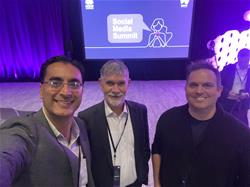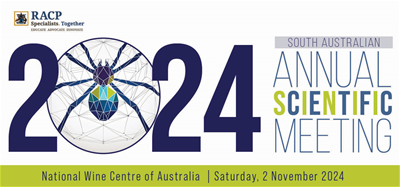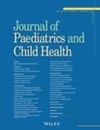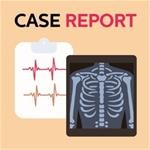Pot-pourri eBulletin - 18 October 2024

Further to my update in the last edition of this newsletter, on Friday, 16 August the PCHD Council hosted a forum with a number of RACP affiliated paediatric specialty societies and paediatric Advanced Training Committees (ATCs). The focus of the day was to share various challenges and priorities and seek ways to work together and strengthen relationships. The following is a list of the specialty societies and committees that were represented:
- Australia and New Zealand Society for Paediatric Endocrinology and Diabetes (ANZSPED)
- Australian Paediatric Society (APS)
- Paediatric Faculty of the Gastroenterology Society of Australasia (GESA)
- Australian and New Zealand Paediatric Infectious Diseases (ANZPID)
- Australasian Association of Clinical Geneticists (AACG)
- Australian and New Zealand Children's Haematology Oncology Group (ANZCHOG)
- Australasian Society of Developmental Paediatrics (ASDP)
- Thoracic Society of Australia and New Zealand (TSANZ)
- ATC in Community Child Health
- ATC in Neonatal and Perinatal Medicine
- CJCT in Paediatric Emergency Medicine
- ATC in Clinical Genetics
- ATC in Adolescent and Young Adult Medicine
Attendees were provided with updates on recent priority discussions, as well as matters arising during the 12 months since this group last met. See previous 2024 Pot-Pourri editions for these highlights.
At the President’s invitation, College staff presented on the following topics:
- Curriculum renewal project
- Training Management Platform (TMP)
- College workforce activities
- Policy and Advocacy campaigns and priorities
- Advanced training site accreditation
We are committed to future meetings with these societies to strengthen our ties and to work together on our shared challenges and goals.
A combined RACP Board and College Council Strategy Day was held in Sydney on 19 September. A key focus area was governance reform which may mean a significant change is likely for PCHD Council. I want to assure you that we will work to ensure that the paediatrician voice is included and heard at the highest level. To address any impacts caused by the College Council reforms, I highly encourage you to apply for Expressions of Interest advertised for key College committees. You can explore the Expression of Interest webpage for further details.
Further to our efforts to raise the age of criminal responsibility from 10 to 14, last ditch appeals are being made to the Northern Territory Government ahead of their plan to wind back the age from 12 to 10. I participated in an interview with ABC Radio on 10 October – take a listen here. You can learn more about the #RaiseTheAge campaign here.
I attended the first day of the New South Wales Government’s Social Media Summit held on 10 October at NSW Parliament House, Sydney (day two of the summit was held in Adelaide). This summit was held in response to increasing concerns about the harmful effects of social media on young people, including exposure to inappropriate and illegal content, cyberbullying, and negative impacts on their mental health and development. I was joined on the day by RACP Fellows Dr Tony Gill, President-elect of the Australasian Faculty of Public Health Medicine and Dr Paul Hotton, Chair of the Chapter of Community Child Health.

Left to right: Professor Nitin Kapur, Dr Tony Gill, Dr Paul Hotton
Both the New South Wales and South Australian Premiers attended the Sydney event, and keynote speakers were Dr Jean Twenge, Professor of Psychology at San Diego State University, and Ms Frances Haugen, a data scientist and social media accountability advocate. Panellists and moderators included academics, industry leaders, youth representatives, and mental and physical health experts. It is hoped that these talks will generate positive outcomes to help ameliorate the harm we have seen occurring in children and young people due to exposure to social media’s more negative influences.
To close on a sad note: many of you, particularly our Aotearoa New Zealand members, will remember Dr Alison Vogel, who served on our Paediatric Policy and Advocacy Committee from 2016 to 2022. Dr Vogel passed away on Friday, 6 September after a lengthy illness. I want to acknowledge the valuable contributions she made to this Division, the College and paediatrics generally. My thoughts are with those who knew her, and with her friends and family. She will be sadly missed.
Professor Nitin Kapur
PCHD President
Several positions are available on PCHD committees. Please consider applying for suitable positions and/or encouraging your colleagues. If you have any questions about any of the PCHD committee positions, please contact Paed@racp.edu.au.
All Expressions of Interest
Open now: RACP Indigenous Health Scholarships
The RACP Indigenous Health Scholarship Program aims to support those medical graduates and current trainees of the RACP who identify as Aboriginal, Torres Strait Islander or Māori on their chosen career path to becoming a physician. The scholarships provide a funded pathway through basic, advanced, faculty or chapter training in Australia and/or Aotearoa New Zealand.
Several scholarships are available for 2025:
- College Indigenous Australian and Māori Health Scholarship
- Aboriginal and Torres Strait Islander Health Scholarship
Applications close 30 November 2024. Further details on these scholarships are available on the RACP Foundation website.
Paediatrics research review with Professor Nick Freezer
This review features key medical articles from global paediatric journals with commentary from Professor Nick Freezer. It covers topics such as paediatric endocrinology, nephrology, pharmacology, paediatric fractures, adolescent health, paediatric neuropsychology and congenital heart disease.
Research Review publications are free to receive for all Australian health professionals. See their website for more details.
Help your patients fight the flu
Children who are normally fit and healthy can become seriously ill from the flu. In some cases, it can be fatal. This was the case for two-year-old Lucy, who suffered serious complications from the flu.
Remind your patients that the flu vaccination is free for children aged six months to under five years through the National Immunisation Program.
Watch Lucy’s story here. If you would like a downloadable version to play in your practice or health setting, email immunisationcomms@health.gov.au.
Find influenza resources for health professionals here.
State of Child Health in Aotearoa New Zealand: Cure Kids
Read the new Cure Kids’ State of Child Health in Aotearoa NZ report. A collaborative exercise from Cure Kids and the New Zealand Child and Youth Epidemiology Service (University of Otago) supported by the RACP Aotearoa New Zealand PCHD Committee and the Paediatric Society of New Zealand. The report builds on previous years highlighting the ongoing health issues faced by children in Aotearoa New Zealand. Key areas include respiratory conditions, rheumatic fever and heart disease, skin infections, dental disease, and mental health concerns. The report emphasises the need for collective efforts to address health inequities and ensure all children in Aotearoa New Zealand can thrive.
Don’t miss the South Australian Annual Scientific Meeting 2024: “Innovation in healthcare: back to the future”

This year’s program is designed to inspire your professional growth, featuring world-leading experts in vaccines, health innovation, and artificial intelligence, along with local and internationally recognised pioneers in using animal venom for groundbreaking medical treatments. Learn about Meningococcal disease and outcomes of our Meningococcal B Immunisation Program in South Australia from Professor Helen Marshall AM and the Advancements in RSV Prevention: Implementation of the RSV Vaccine and Nirsevimab in the US from Associate Professor Flor M Munoz.
Other program topics include:
- Innovation in Toxinology: Professor Glenn King and Associate Professor Julian White AM
- Artificial Intelligence (AI): Christopher Foster-McBride, Adjunct Professor Malcolm Pradhan, Dr Andrew Booth, Dr Shrirajh Satheakeerthy and Associate Professor Stephen Bacchi
- Wellbeing: Dr Tabitha Healey
- SA Trainee Research Awards
- ASM dinner featuring a spectacular performance presented by State Opera South Australia.
More than just educational - connect with your colleagues in a vibrant, yet relaxed environment.
Register now
RACP flagship event survey
Have your say. Help us shape your future conference experience.
RACP Congress has been postponed for 2025. This break means we have the opportunity to renew our flagship event to better meet your needs. But we need to hear from you.
Your feedback is essential to help us tailor this event to better align with member interests and preferences. It will guide us in developing a flagship event that not only meets, but – we hope – exceeds your expectations. Closes on Sunday, 27 October 2024.
Complete the survey.
Advanced Training Curricula Renewal (ATCR) update
Following a period of development in 2023 and consultation and refinement in 2024, new curricula have now been approved by the College Education Committee for:
- addiction medicine
- community child health
- nuclear medicine
- paediatric palliative medicine
- paediatric respiratory medicine
- paediatric sleep medicine.
Details are published on the relevant Specialty Development pages on the RACP website.
We would like to acknowledge all members who took part in the curricula renewal development process for these specialties, in particular the specialist contractors, Curriculum Review Group members, and everyone who took the time to review and provide feedback on the draft curricula.
At the earliest, the new curricula will be implemented with first year trainees in 2026. There is no change in requirements for trainees enrolled under the current curricula.
For more information on the Advanced Training curricula renewal project and the redesign of 38 specialty programs, please visit the RACP website.
Pharmaceutical Benefits Scheme (PBS) listings
New and amended Pharmaceutical Benefits Scheme (PBS) listings are available here. This information relates to the administration of these listings by Services Australia.
For further information on broader PBS changes, please visit the PBS website
Journal of Paediatrics and Child Health

The Journal of Paediatrics and Child Health publishes original research articles of scientific excellence in paediatrics and child health. The latest edition is now live and available to view online.
Some topics include:
- Geographic accessibility to emergency services and infant mortality
- Reducing RSV morbidity in children
- Herpes simplex virus in infancy
Read the journal
Pomegranate Podcast [Case Report]: 48yo with diarrhoea and lymphadenopathy

This podcast follows the case of a 48-year-old male with a three-month history of diarrhoea and associated lymphadenopathy. A complex constellation of symptoms accompanies this presenting complaint, along with a key radiological finding that enabled the treating team to arrive at the correct diagnosis. Can you arrive at the correct diagnosis before the treating team? This case was managed at the Queen Elizabeth Hospital and is presented by Dr Andrew Vanlint from the Northern Adelaide Local Health Network and University of Adelaide.
Please visit the Pomegranate Health web page for a transcript and supporting references. Login to MyCPD to record listening and reading as a prefilled learning activity. Subscribe to new episode email alerts or search for ‘Pomegranate Health’ in Apple Podcasts, Spotify, Castbox or any podcasting app.
Visit:
Pomegranate (racp.edu.au) for the full episode.
You’ve told us that you need your College to be more responsive and supportive. We’ve listened to your feedback and we’re establishing a new Member Support Centre to help you navigate your College, improve enquiry response and resolution times and better support your needs. Thank you for your feedback – it helps us improve.
Did you know that you can update your address details online? Simply Login to MyRACP and go to “Edit my details”.
RACP Benefits: Your lifestyle benefits program

Save on all your favourite lifestyle and service brands from leading retailers across Australia and Aotearoa New Zealand – with
RACP Benefits. Our lifestyle benefits portal offers you exclusive discounts and genuine savings on items in a range of popular categories. To celebrate the launch of
RACP Benefits, we have some great offers for you to explore.
So log in today and take advantage of your RACP Benefits.
Pomegranate Health podcast: Your contributions welcome
The RACP podcast, Pomegranate Health, has published over 100 episodes since starting out eight years ago.
To provide more frequent and focused content we’re seeking contributions from our speciality societies, committees and affiliated professional organisations.
To hear what this would sound like, listen to the episodes tagged [IMJ On-Air]
These episodes feature authors published in the Internal Medicine Journal being interviewed by the relevant section editor.
They have covered themes as varied as asthma management, hospital-acquired complications, causes of readmission and the JEV outbreak.
You already spend considerable time preparing lectures and webinars for your colleagues.
Audio podcasts provide an easy way to reach thousands more around the world.
Each episode gets downloaded around 6500 times over the first 12 months from publication, with 21 per cent of listeners located outside of Australia and Aotearoa New Zealand.
All you need to do is to organise one or more presenters and an interviewer familiar with the material. The podcast producer will coordinate an online recording lasting about one hour and then edit it down before publication. The intention would be to ‘brand’ regular episodes from your specialty society or organisation in the same way that we’ve done with [IMJ On-Air].
Please send any questions or ideas to podcast@racp.edu.au
View all career opportunities on the RACP website.
To submit an article for publishing in Pot-pourri, please email paed@racp.edu.au. The article should be no more than 350 words. If you would like to submit an image with your article, it would be assumed that you have received appropriate permission to use the photo and it needs to be of high resolution, above 300 dpi. Please note that articles may need to be edited by the RACP Communications Team.